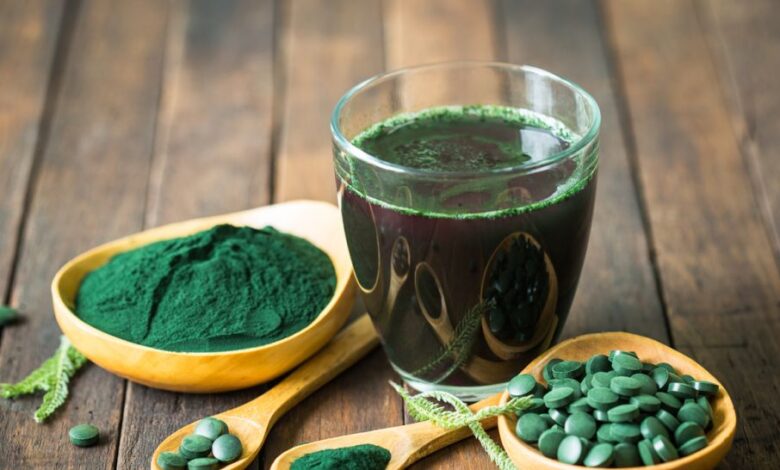Spirulina – Why It’s Food for Astronauts

Have you ever wondered what astronauts consume while they are in space? One of the foods they eat is spirulina. Spirulina is a type of blue-green algae with a distinctive blue-green color that grows in salty or fresh water. It is rich in various nutrients and antioxidants and is available in the form of tablets as a supplement – one of the most well-known supplements globally – or as a powder.(1)
**What is Spirulina Rich In?**
1. About 7 grams of spirulina powder contains 20 calories, 4 grams of protein, 1-2 grams of carbohydrates, thiamine, riboflavin, copper, iron, niacin, potassium, magnesium, manganese, omega-6 fatty acids, and omega-3 fatty acids in a ratio of 1.5:1. It also provides all the essential amino acids needed by the body. Impressive, isn’t it?(2)(3)
2. **Lowers Cholesterol Levels:** Spirulina improves good cholesterol levels while simultaneously reducing bad cholesterol and triglyceride levels, which are risk factors for cardiovascular diseases.(4)(5)
3. **Relieves Symptoms of Allergic Rhinitis:** Some studies suggest that spirulina has a better effect than some antihistamines and cetirizine used to relieve symptoms associated with allergic rhinitis.(6)
4. **Possesses Anti-Cancer Qualities:** Some research indicates that spirulina has the qualities to prevent the formation of cancer and, in the presence of certain types of cancer, may reduce tumor size.(7)
5. **Improves Anemia:** Anemia is quite common, especially in older people, and is associated with fatigue and muscle weakness. Scientists have shown that spirulina improves hemoglobin levels in young children and pregnant women in the second trimester of pregnancy.(8)(9)
6. **Controls Blood Sugar Levels:** Consuming around 5-6 grams of spirulina daily on an empty stomach may reduce glucose levels in people with acquired diabetes.(10)(11)
7. **Boosts Immunity:** Spirulina is exceptionally rich in vitamins such as vitamin C, vitamin E, and vitamin B6, which support a healthy immune system. It has been proven that spirulina increases antibodies and white blood cells that destroy bacteria and viruses. It is on its way to proving its ability to assist with HIV, the flu, and herpes.
**Does Spirulina Have Side Effects?**
It is considered safe and poses no risk to health. It is recommended for people taking medication for high blood pressure to consume it after consulting with a doctor. As rare side effects, it may lead to some digestive problems and insomnia.
**Can It Be Taken Every Day?**
Some people take it for up to six months at a dose of 8 grams per day, but a doctor would advise how long and how much is safe to take based on individual health.


